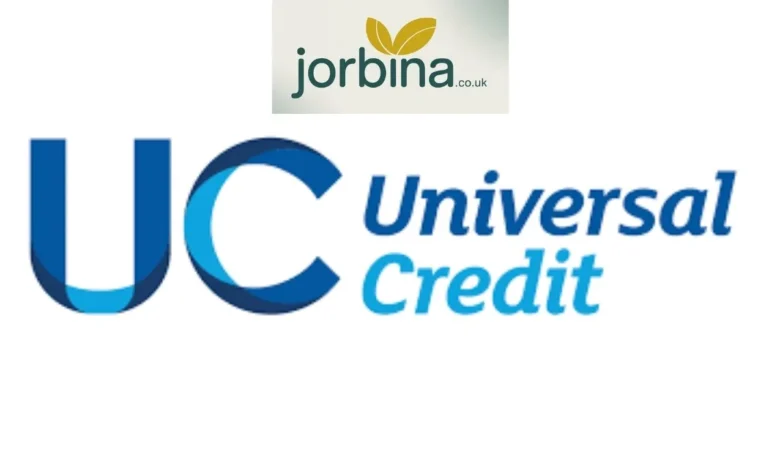How the Contingency Fund NI Protects You from Emergencies

Have you ever faced an unexpected expense that turned your week upside down? Maybe your boiler broke, your wages were delayed, or your electricity ran out before payday. In moments like that, even the best budgeting plans can fall apart. That’s where the Contingency Fund NI steps in. This government grant in Northern Ireland offers quick help when you’re stuck in a financial emergency. It’s not a loan, and you don’t have to pay it back. Here’s how it works, who can apply, and why it matters more than most people realise.
Understanding the Contingency Fund NI
The Contingency Fund NI is designed to help people in Northern Ireland who are claiming or waiting for Universal Credit. It offers short-term financial assistance when you face a crisis that puts your health or safety at risk. This fund exists to bridge the gap between your Universal Credit application and your first payment or to help when you experience sudden hardship. It’s a non-repayable grant funded through the Department for Communities and distributed via the Finance Support Service. Unlike an advance payment, this fund doesn’t have to be repaid, making it a true lifeline when you have nowhere else to turn.
Why Contingency Fund NI Exists
Unexpected expenses can hit hard, especially when you rely on benefits or low-income work. Waiting several weeks for your first Universal Credit payment can be stressful, and it’s easy to fall behind on essentials. The Contingency Fund NI was created to prevent that. It helps people keep food on the table, pay for heating, or handle sudden bills that could threaten their well-being. The fund’s goal is simple: to stop a temporary crisis from becoming a long-term problem. Having access to this fund can make the difference between managing a setback and spiralling into debt.
Who Can Apply for the Contingency Fund NI
To qualify for the Contingency Fund NI, you must live in Northern Ireland and either be waiting for your first Universal Credit payment or facing an immediate financial emergency. You should also meet the general eligibility rules for discretionary support under the Department for Communities. Typically, this means you must be over 18, live in Northern Ireland, and show that you’re in a crisis that threatens your health or safety. The emergency must have occurred in Northern Ireland, and you must demonstrate that you have limited savings or resources. Students and those on low incomes may also qualify if they meet these conditions.
How to Apply for the Universal Credit Contingency Fund
Applying for the Contingency Fund NI is straightforward. You can do it online or by phone. To apply, you’ll need your National Insurance number, proof of income, details of your rent or mortgage, and a short explanation of your situation. You should clearly state that you’re applying for the Universal Credit Contingency Fund, not a loan. You can apply by calling 0800 587 2750, the official helpline for the Finance Support Service. If you prefer to apply online, you can visit the Finance Support section of the NI Direct website. After submitting your application, you’ll receive a decision quickly, sometimes within days. If approved, the grant is paid directly into your bank account.
How Much You Can Get from the Contingency Fund NI
The amount you receive depends on your personal circumstances. There isn’t a fixed figure for everyone because the fund is meant to match your essential needs until your next source of income arrives. The Department for Communities reviews each case individually. If your financial need is severe, you may receive enough to cover living essentials like food, heating, and hygiene items. The payment is not considered income, and you don’t have to pay it back. It’s different from other benefits because it’s a short-term safety net rather than an ongoing support payment.
Understanding the £500 Financial Hardship Grant and Household Support Fund NI
You may have heard of the £500 financial hardship grant in Northern Ireland. While the term sometimes refers to local council hardship schemes, it’s closely related to the broader support available through the Finance Support Service and the Household Support Fund. The Household Support Fund NI helps vulnerable households with essentials such as food and energy costs. Each local council in Northern Ireland manages its own version of this scheme. You can usually apply through your local authority’s website. Both the Household Support Fund and the Contingency Fund NI aim to help people during genuine hardship, though they operate separately.
Strengthening Your Application for the Contingency Fund NI
When you apply, be as clear as possible about why you need the grant. Describe your emergency in simple terms and provide supporting details like bills, bank statements, or evidence of your UC claim. The Department for Communities needs to see that your situation is urgent and that the payment will prevent harm or hardship. If you’re unsure about your eligibility, it’s still worth applying. The Finance Support Service can guide you through the process and explain other help you may qualify for, such as Discretionary Support or short-term living expense grants.
What You Can Use the Contingency Fund NI For
This fund is meant for essentials only. That includes food, gas or electricity top-ups, basic toiletries, and other daily living costs. You can also use it to cover emergency repairs or urgent expenses that can’t wait until your next benefit payment. However, it’s not designed for luxury spending or ongoing debts. The key idea is immediate relief during an emergency, not long-term financial support. Using it wisely ensures that those in greatest need can continue to access it.
The Benefits of Having a Personal Contingency Fund
While the government’s Contingency Fund NI offers great short-term help, it’s still important to build your own personal safety net over time. Even saving a small amount each week can help you handle unexpected costs without relying on emergency grants. A personal contingency fund gives you more control and reduces financial stress. It can cover small crises like a broken appliance or car repair, and it gives you peace of mind knowing you’re prepared for surprises. Pairing a personal fund with the state Contingency Fund NI creates a stronger, more stable financial base.
What If You’re Not Eligible?
If you don’t qualify for the Contingency Fund NI, there are still options. You can apply for discretionary support through the Finance Support Service, which offers interest-free loans and grants for people in short-term difficulty. Local councils and charities in Northern Ireland also provide targeted support for food, heating, and housing. The best approach is to contact the Finance Support Service directly; they can explain what’s available in your situation and help you find the right type of support.
Additional Support You Can Explore
If you’re managing a business or healthcare organisation, you might also benefit from Emergency Staffing Solutions for Healthcare and Beyond. It’s a useful resource from Jorbina, which connects professionals with urgent staffing and operational support. While this isn’t financial aid, it can be a valuable backup plan if your organisation faces sudden workforce challenges.
FAQs
What is the Universal Credit contingency fund payment?
It’s a grant available in Northern Ireland for people claiming Universal Credit who face a financial emergency while waiting for their first payment or during a hardship period. The payment is non-repayable and meant to cover essential costs.
What is an example of a contingency fund?
A personal contingency fund could be a small savings account used for emergencies like car repairs or medical bills. On a government level, the Contingency Fund NI serves the same purpose; it helps cover essential living expenses when you can’t wait for your next income.
What can I claim on the NI discretionary support?
You can apply for help with short-term living expenses, urgent household repairs, rent in advance, or other crisis-related needs. The support can come as a grant or an interest-free loan, depending on your situation.
What can the contingency fund be used for?
You can use the Contingency Fund NI for essentials such as food, gas, electricity, or emergency travel. It’s meant to keep you safe and stable while waiting for your Universal Credit or income.
What are the benefits of a contingency fund?
A contingency fund protects you from financial stress, reduces the need for borrowing, and gives you stability during emergencies. Whether it’s a personal savings buffer or the government Contingency Fund NI, having one means you’re better prepared for life’s surprises.
Final Thoughts
The Contingency Fund NI is more than just a grant; it’s a financial lifeline for people in Northern Ireland who need quick help when things go wrong. If you’re applying for Universal Credit and facing an emergency, don’t hesitate to reach out to the Finance Support Service. The process is simple, the support is fast, and the help can make all the difference when you’re struggling to stay afloat. At the same time, aim to build your own small contingency fund, even if it’s just a few pounds a week. Together, these safety nets can keep you steady no matter what life throws your way.



